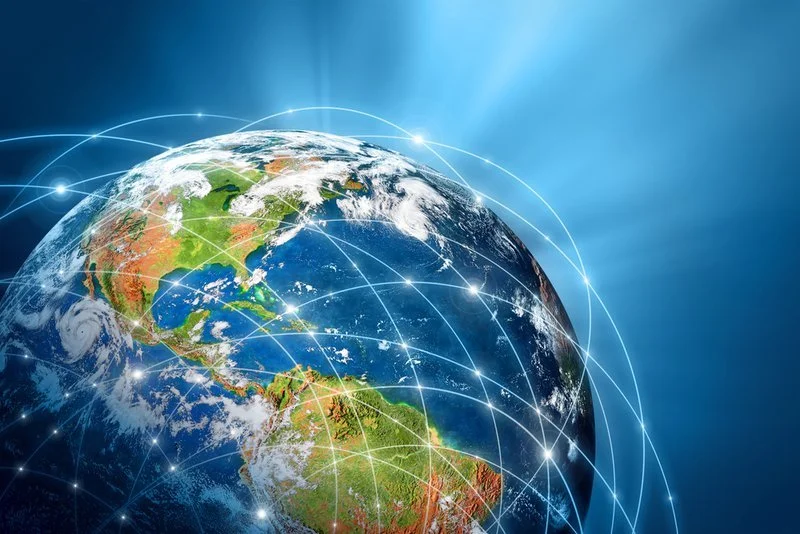The Horrifying True Evils of Globalization
Written By
London Allen
July 19th, 2024
Globalization refers to the process that has challenged the exclusivity of states as the primary actors in international affairs. It links distant communities and opens spaces for new social actors, including public-interest-oriented non-governmental organizations (NGOs), corporate actors, and international governmental organizations (McGlinchey). This process integrates various non-state actors, which are increasingly relevant in agenda setting, international law-making, diplomacy, and the implementation and monitoring of global issues such as trade, development, poverty reduction, democratic governance, human rights, peace, environment, security, and information society.
According to S. McGlinchey, “Globalisation links distant communities and opens up spaces for new social actors”. Though seen as a buzzword in the study of international relations (IR), Globalization plays a crucial role in the world, especially as it concerns the global economy. While globalization may ostensibly be beneficial, there are both pros and cons to the process. One of the significant concerns of globalization is the way in which it can increase poverty and inequality. Therefore, while it has benefits, globalization has seemingly made the world a worse place.
As aforementioned, the globalization process has pros in addition to cons. The process benefits the global economy because it can lead to economic growth. For example, globalization can increase trade and investment. According to economist David Dollar, countries integrating into the global economy often experience higher growth rates. Furthermore, this can lead to job creation in the right environment. Access to international markets can stimulate job creation in emerging economies, particularly in manufacturing and service sectors (OECD). Even though globalization may present economic opportunities for some, this is not true for all.
While the pros may seem desirable, there are still economic and equity concerns with the rise of globalization. Globalization can result in economic disparities. It is obvious that the benefits of globalization are often unevenly distributed since wealthier nations and individuals can gain more than developing countries. This phenomenon has likely contributed to the idea of using globalization as another word for Americanization (McGlinchey). Furthermore, Globalization can lead to the erosion of local cultures and traditions, negatively affecting community cohesion and social capital (Giddens). In some cases, globalization has led to labor exploitation in developing countries, where workers may face poor working conditions and inadequate wages (Benería). Overall, this can contribute to the division of classes and inequity while promoting poverty.
Based on these concerns, globalization has made the world worse off overall despite some benefits. The negative impacts, particularly in terms of increased poverty, inequality, and cultural erosion, outweigh the positive aspects. As previously mentioned, the spread of Western culture and values, particularly American culture, through globalization has led to the homogenization of cultures. This "Americanization" has often undermined local traditions and practices, leading to cultural homogenization and the loss of cultural diversity. The dominance of American media, fast food, and consumer goods globally illustrates this trend, impacting local industries and cultural identities (Tomlinson).
“ During [a] nearly two-decade occupation, the United States controlled Haiti’s security and finances; it also imposed racial segregation, forced labor, and press censorship, and deposed presidents and legislatures that opposed the U.S. presence”
Moreover, Globalization can also be critiqued for perpetuating a form of neo-colonialism, where developed countries exert control over developing nations through economic and political means. Multinational corporations often exploit resources and labor in poorer countries, leading to environmental degradation and poor working conditions without significantly benefiting the local population. A prime example is the exploitation of Haiti in which “During [a] nearly two-decade occupation, the United States controlled Haiti’s security and finances; it also imposed racial segregation, forced labor, and press censorship, and deposed presidents and legislatures that opposed the U.S. presence” (Roy & Labrador).
Ultimately, while globalization has brought some economic growth and technological advancements, it has also exacerbated inequality, eroded cultural identities, and perpetuated exploitative practices. Addressing these negative impacts requires fundamentally rethinking global economic and political systems to ensure more equitable and sustainable outcomes.
To combat the negative impacts of globalization, several strategies can be employed to create more equitable and sustainable outcomes. One key approach is to strengthen international regulations and standards to protect workers' rights, environmental standards, and fair trade practices. This can involve supporting international labor organizations and environmental protection agencies that enforce such standards globally. Additionally, promoting local economies and sustainable development can help mitigate the adverse effects of globalization. Encouraging local production and consumption reduces dependency on international markets and helps preserve cultural identities and local traditions.
Another important strategy is to foster inclusive economic policies that address inequality. Taking actions such as supporting civil society and grassroots movements that advocate for social justice, environmental protection, and human rights can amplify the voices of marginalized communities and hold corporations and governments accountable. By adopting these measures, it is possible to create a more balanced and just global system that mitigates the negative consequences of globalization while harnessing its benefits.
Written by: London Allen
About the Author:
Baltimore-based writer advocating for marginalized communities.
Sources
Benería, L. (2019). Gender, Development, and Globalization: Economics as If All People Mattered. Routledge.
Roy, D., & Labrador, R. C. (2024). Haiti’s troubled path to development. Council on Foreign Relations. https://www.cfr.org/backgrounder/haitis-troubled-path-development
Dollar, D. (2016). China’s Engagement with Africa: From Natural Resources to Human Resources. The Brookings Institution.
Giddens, A. (2013). The Consequences of Modernity. Stanford University Press.
McGlinchey, S. (Ed.). (2022). International relations. E-International Relations Publishing.
OECD. (2018). Trade and Development: Recent Trends and the Role of the WTO. OECD Publishing.
Rodrik, D. (2018). Straight Talk on Trade: Ideas for a Sane World Economy. Princeton University Press.
Tomlinson, J. (1999). Globalization and Culture. University of Chicago Press.
Globalization Effects, Social Inequality, Environmental Justice
Check out our social media for more resources:
Leave a comment


